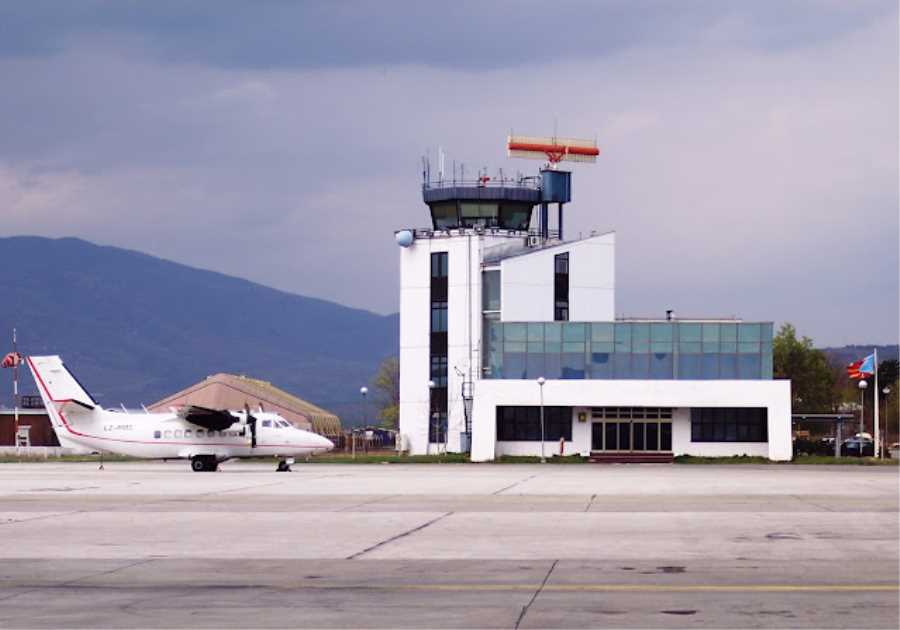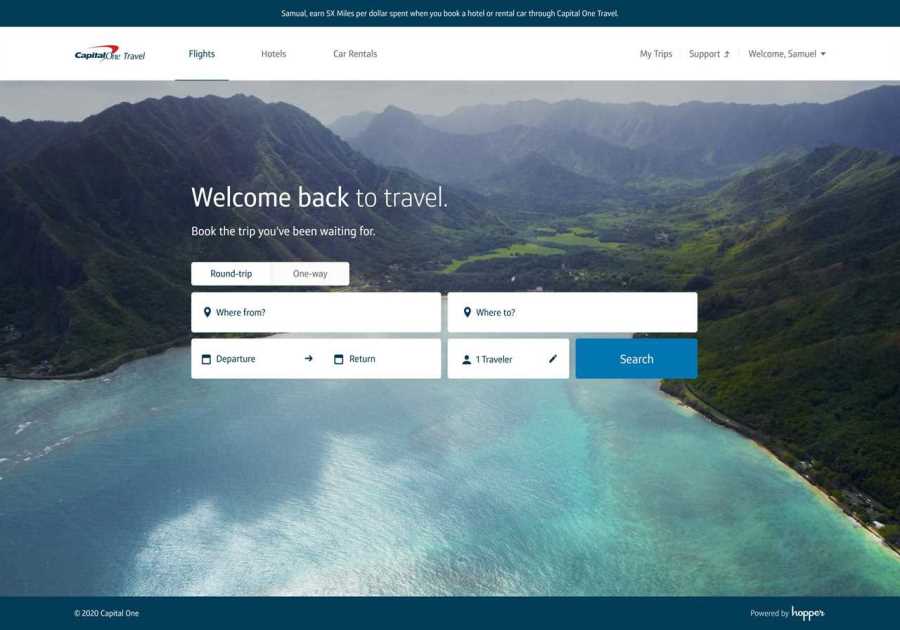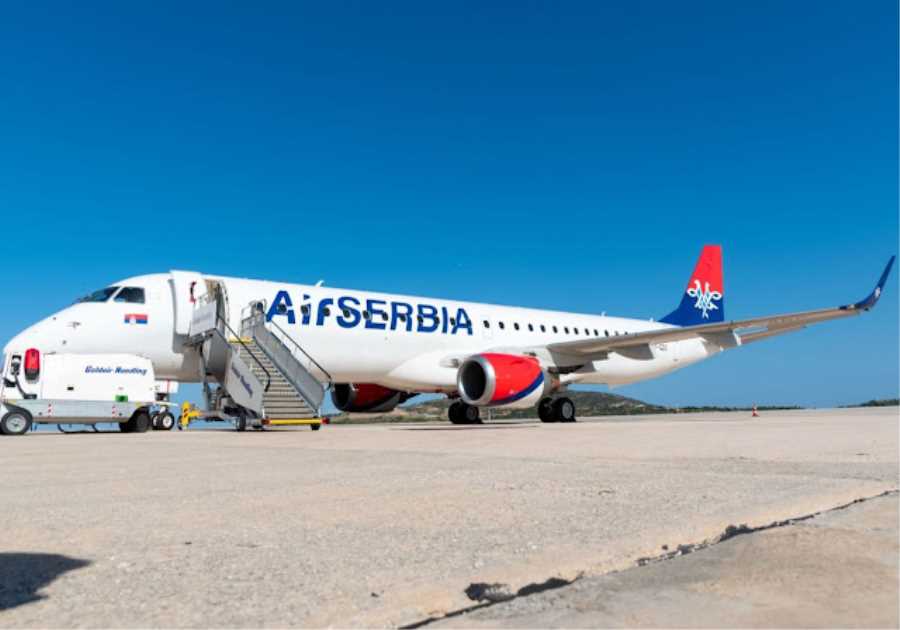HOSTED BY: https://1airtravel.com
TODAY'S READ
*Originally posted on travelradar.aero - the leading aviation news source*
From a single shop in a small Irish airport, duty-free shops have expanded to become a familiar sight for travellers worldwide.
Shannon Airport is the birthplace of a world-first, duty-free shopping © Wolf32at on Wikipedia
The Origins of Duty-Free Shopping
Duty-free can be defined simply as “exempt from duty/tax.”
Duty-free shops are locations where prices do not include value-added tax and/or other taxes applied to purchases in other places, such as on the high street.
The duty-free industry celebrated its 75th anniversary in 2022, with its routes tracing back to an airport in the Republic of Ireland.
Established in 1947 by businessman Brendan O’Regan, the first duty-free shop opened at Shannon Airport (SNN) in the Republic of Ireland; the shop still operates to this day.
At the time, the airport was a vital stopover destination for planes to refuel and for travellers transiting between North America and Europe. O’Regan, a catering comptroller at the airport, noted passengers’ tendency to shop during their stopovers and saw this as a pivotal opportunity to raise revenues in the wake of (the restraints of) the war.
O’Regan proposed offering tax-free products in the airport’s shop to incentivise customers. To comply with the laws around the tax of goods and services, O’Regan convinced the Irish government to declare Shannon Airport outside of Ireland.
The airport’s duty-free shop sold local produce, including meat, eggs and butter; however, it was the sale of alcohol that proved to be the most successful with customers and, thus, the most lucrative sales product.
O’Regan presented his original idea at the New York Convention on International Travel in 1954, and his concept has since been adopted and modified by countries around the world.
Shopping Locations and Purchase Restrictions
Opportunities to purchase duty-free goods are not just limited to airports. Products can be purchased in special duty-free shops in towns and cities, ports, and in transit on board ships and aircraft.
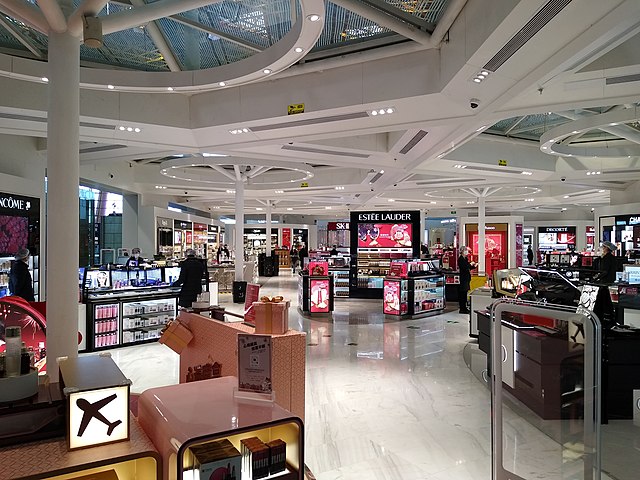
Perfumes are one of the most popular items bought in duty-free shops © Mx. Granger on Wikipedia
Individuals needn’t be on land to make duty-free purchases, as many airlines offer this service to passengers during flights. In airports, passengers making such purchases must present their boarding card as proof of their final destination.
Limits on the quantity and volume of products passengers can purchase vary from country to country. Some countries set exact limits in terms of quantity or volume of products. For example, in the United Kingdom (UK), tobacco limits as set at 200 cigarettes, 100 cigarillos, 50 cigars, or 250g of tobacco. Other countries place limits based on the value of imported products. For example, Canada allows non-residents to bring gifts to the value of C$60 per gift.
Stricter limits apply in particular to tobacco and alcohol imports. Passengers caught exceeding the set allowances can find themselves subject to hefty additional taxes, which in some cases far outweigh the total cost of the item if purchased at full price. Passengers must also be aware of items that may be prohibited at their destination. In some cases, the items may be seized.
Financial Aspects of Duty-Free Shopping
The first duty-free shops in airports initially sold exclusive items not available on the high street; nowadays, both luxury goods and household names are available to purchase.

Shoppers need to pay attention to the deals on offer to assess actual value for money © Pixabay
The mainstays of duty-free sales are alcohol, tobacco, cosmetics, and perfume, with the latter dominating sales. For airports, such sales typically contribute to around 50% of their revenues and are vital to their success and onward survival.
However, it is not always the case that duty-free products are necessarily cheaper, as retailers are under no regulatory obligation to pass tax savings on to customers. In locations such as airports, for example, factors such as convenience, impulse buying and passengers having “time to kill” play a role in purchasing decisions. It is, therefore, necessary for customers to complete their research when looking for the best deals, and it is also crucial to consider currency exchange rates at the time of purchase.
Rules and Restrictions in Different Countries around the World
Countries worldwide apply different rules for duty-free allowances; in some countries, the importation of certain products is prohibited. Travellers are advised to check information regarding the allowances for their destination of travel before their trip.
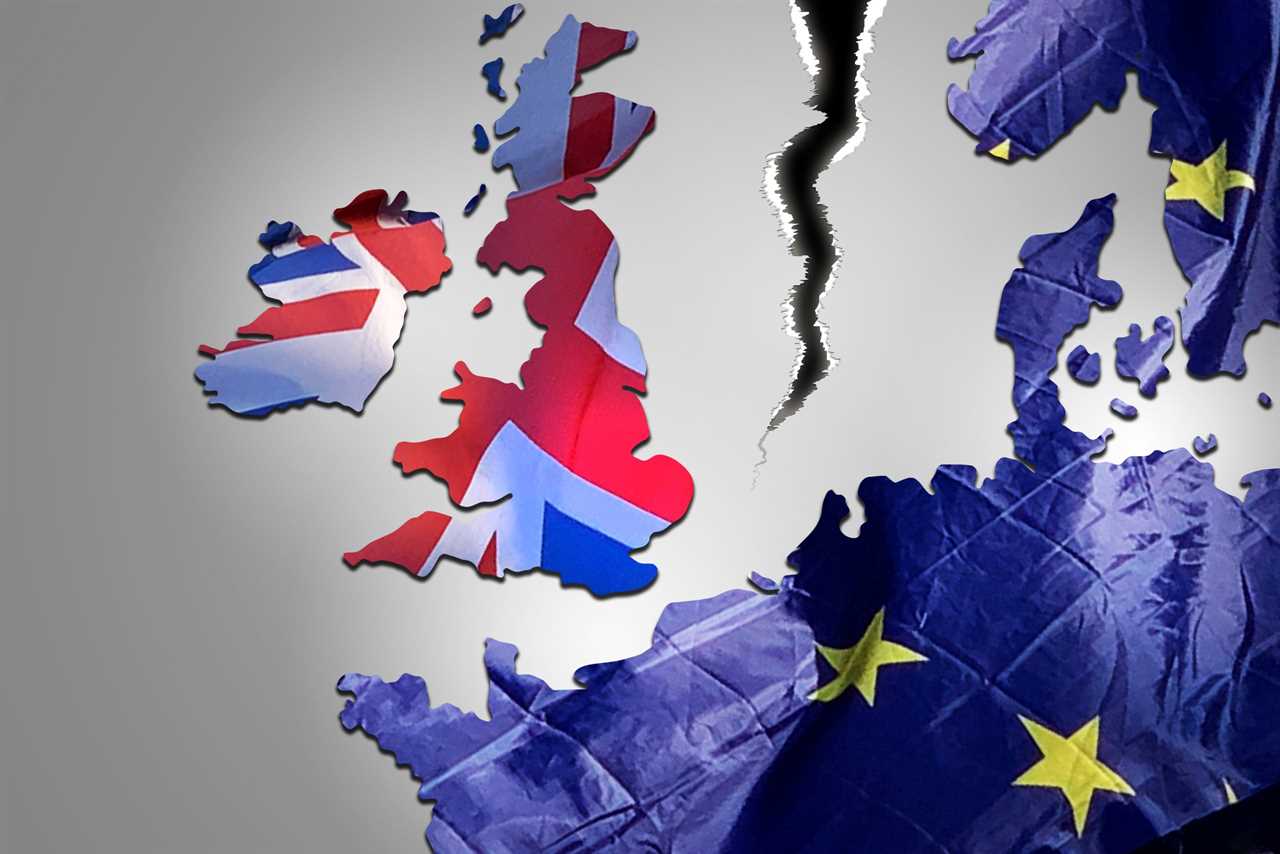
The UK’s departure from the European Union has brought about changes in duty-free rules and restrictions © Christoph Scholz
The European Union In November 1991, the European Union (EU) announced plans to abolish tax-free sales for member states within the single market. From July 1999, duty-free outlets were abolished for intra-EU travellers; however, travellers whose final destination is outside the EU can still use these facilities.
In addition, certain territories of members of the European Economic Area, such as the Canary Islands, are still allowed to complete duty-free purchases.
United Kingdom Following the UK’s departure from the EU, duty-free shopping was reintroduced in January 2021 for passengers from England, Wales and Scotland travelling to EU countries.
Barbados Duty-free imports to the island of Barbados are limited to 1L of spirits or wine, with all other items being subject to complete import duties and taxes.
Singapore Although importing cigarettes and tobacco products is legal, there are currently no duty-free allowances for such products in Singapore. As such, travellers must pay the required taxes in full.
Countries in the Middle East, Africa and Asia It is illegal to import alcohol into many Middle Eastern, African and Asian countries, so passengers travelling to these destinations may not make duty-free alcohol purchases. Example countries include Afghanistan, Iran, Kuwait, Libya, Mauritania, Pakistan, Sudan, Saudi Arabia and the Maldives.
The Future of Duty-Free Shopping
The COVID-19 pandemic severely affected the travel industry, with retail sales in the sector being limited by worldwide travel restrictions. With the lifting of such conditions and pent-up demand for leisure travel, duty-free sales are expected to exceed pre-pandemic levels.

E-commerce is becoming increasingly crucial for duty-free retailers © Jason White
To recover lost revenues, and in response to stiff competition from online retailers and changing customer habits and expectations, more and more retailers have turned to e-commerce, with many businesses now providing click-and-collect services.
Passengers are offered the opportunity to order products online, sometimes up to a month before their trip and pick them up directly from the airport. In further efforts to provide customers with more convenience, retailers are also developing ways for customers to have in-airport purchases delivered to their homes. Many airports are also introducing stores in their arrivals halls in addition to those already in the departures halls.
Do you use duty-free facilities when you travel for business or leisure? Let us know in the comments.
**CONTENT ORIGINATED FROM TRAVELRADAR.AERO***https://travelradar.aero*
By: Rachel DunsterTitle: Duty-Free Shopping – From Humble Beginnings to a Worldwide Phenomenon
Sourced From: travelradar.aero/duty-free-shopping-from-humble-beginnings-to-a-worldwide-phenomenon/?utm_source=rss&utm_medium=rss&utm_campaign=duty-free-shopping-from-humble-beginnings-worldwide-phenomenon
Published Date: Thu, 15 Dec 2022 09:20:16 +0000


